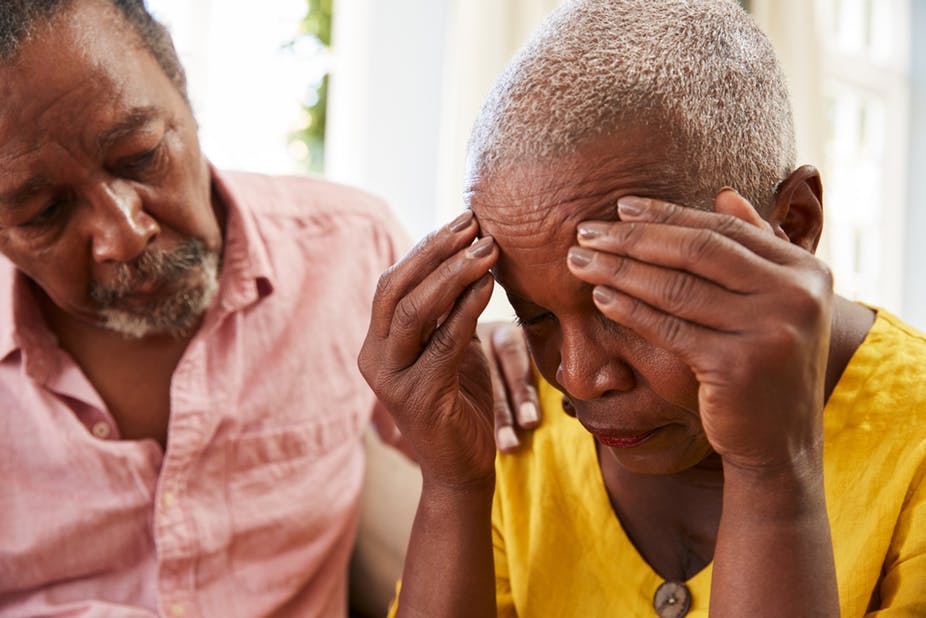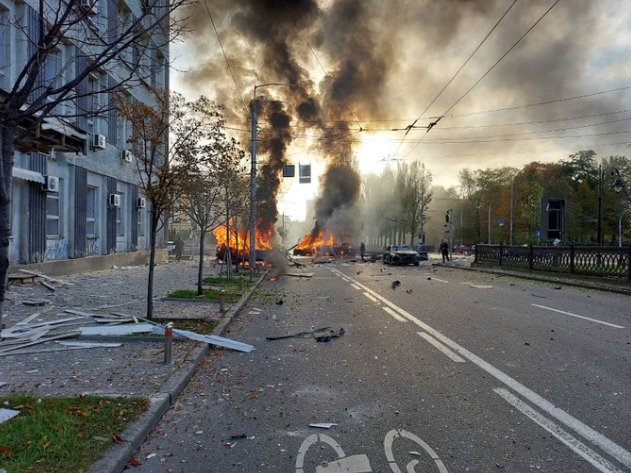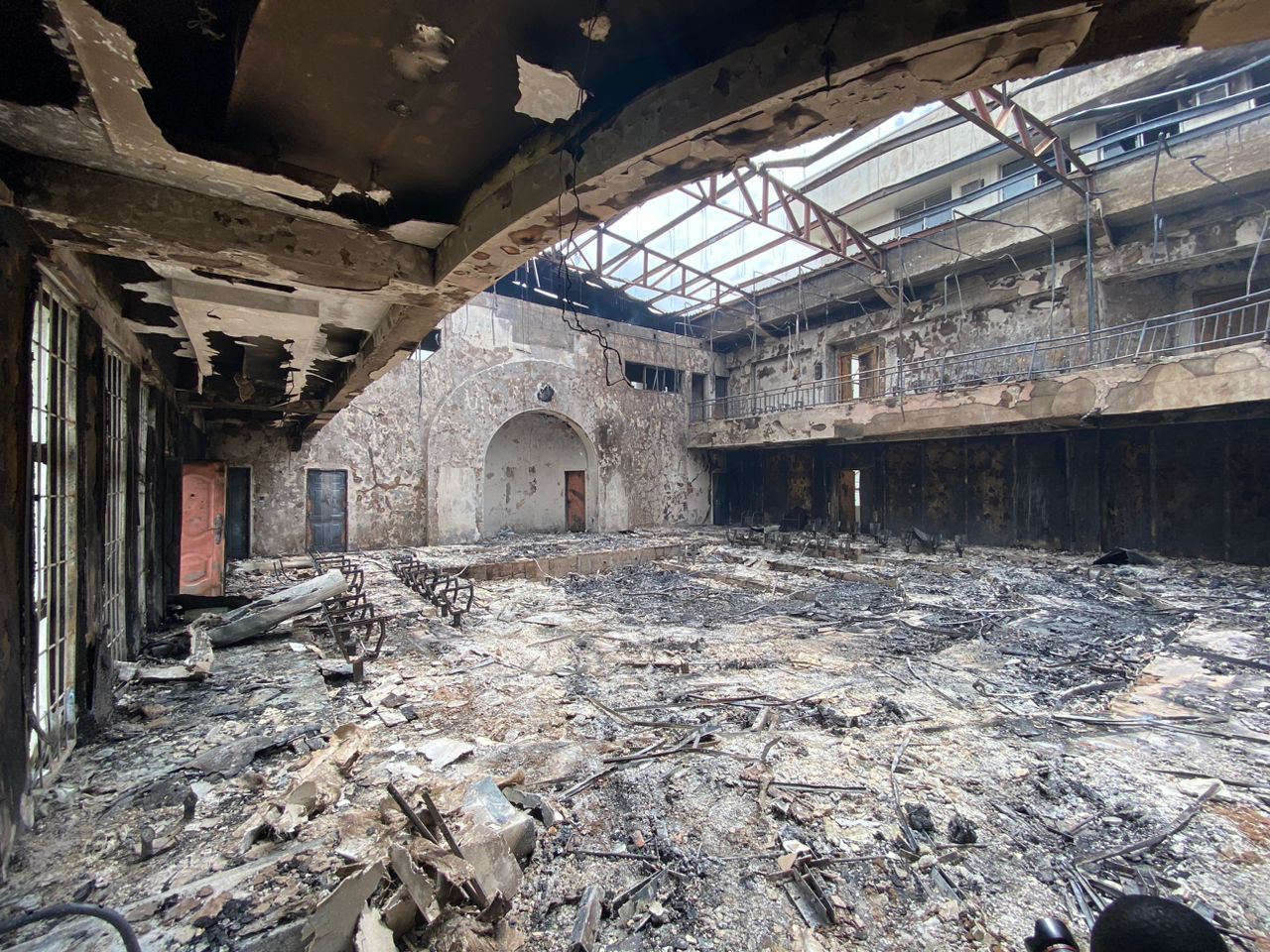Having trouble sleeping or overwhelmed by the reality of being a new mother? An index finger to the temple, then a twist — or repeated twists — and you are adjudged “mad”. In the Nigerian context, persons with mental health illnesses are often misconstrued to be insane and may soon hit the streets in tattered clothes, muttering words amid incoherent laughter.
In September, Taiwo Obindo, president of the Association of Psychiatrists in Nigeria (APN), said more than 60 million Nigerians are suffering from mental illnesses. But does this mean that over one-third of Nigerians are “mad”?
This article, in commemoration of World Mental Health Day marked every October 10, sheds light on some of the misconceptions about mental illnesses, as well as the state of the mental healthcare (MHC) sector in Nigeria.
WHAT IS A MENTAL ILLNESS?
Advertisement
Mental illness, also called mental disorder, refers to a wide range of conditions that affect mood, thinking and behaviour. According to the World Health Organisation (WHO), mental disorder is characterised by a clinically significant disturbance in an individual’s cognition, emotional regulation, or behaviour.
Mental illness occurs in various degrees or severities, ranging from mild to moderate to severe.
TYPES OF MENTAL ILLNESSES
Advertisement
- Depression
- Anxiety disorder
- Schizophrenia
- Minimal brain dysfunction (MBD)
- Post-traumatic stress disorder (PTSD)
- Eating disorder
- Bipolar disorder
- Attention deficit/hyperactive disorders
- Dementias
- Phobias
IS MENTAL ILLNESS “MADNESS”?
In a chat with TheCable, Obindo explained that there is no mental health illness called madness and that, as a matter of fact, “madness is nowhere in our medical or psychiatry lexicon.”
“This is a derogatory, stigmatising and discriminative word used to refer to those who have severe mental illness. ‘He is crazy or mad’ are commonly used in our society but have no basis in our vocabulary,” he said.
“More often than not, people use it to describe behaviours that are not in tune with societal norms playfully or derogatorily. At times, it is used for the psychotic vagrants on the road whom society (including family members) have inadvertently neglected.
Advertisement
“Majority of people are labouring under one form of mental disorder or the other but are still able to work or function. However, their functioning is not optimal. There are those who are not aware that what they have is classified as mental illness and are rather seeking help somewhere else. The truth is that the figure may even have been an underestimation.”
WHO IS AT RISK OF DEVELOPING A MENTAL DISORDER?
Anyone can develop a form of mental illness at any time in their life depending on the circumstances they are confronted with.
According to WHO, “at any one time, a diverse set of individual, family, community and structural factors may combine to protect or undermine mental health. Although most people are resilient, people who are exposed to adverse circumstances – including poverty, violence, disability and inequality – are at higher risk.
Advertisement
“Protective and risk factors include individual psychological and biological factors, such as emotional skills as well as genetics. Many of the risk and protective factors are influenced through changes in brain structure and/or function.”
For instance, Aisha Buhari recently disclosed that her husband, President Muhammadu Buhari, suffered post-traumatic stress disorder (PTSD) at some point in his life.
Advertisement
According to her, some of the contributory factors to her husband’s mental illness were the civil war, a coup d’état and his detention.
DO ALL MENTAL ILLNESSES REQUIRE MEDICAL TREATMENT?
Advertisement
Obindo explained that mental disorders are treated or managed in other ways apart from the use of of medication.
“Counselling, various forms of psychotherapy, environment manipulation etc are also used alone or in conjunction with medication. Mild forms of illness may require only counselling or psychotherapy,” he said.
Advertisement
David Peters, another psychiatrist who spoke with TheCable, claimed that there are sometimes conspiracies between the medical world and big pharmaceutical companies where the former helps the latter to “make diagnosis or illness that are not medical to be medical”.
According to Peters, some mental illnesses do not require medication but psychosocial treatment like counselling.
“There are a lot of arguments around mental illness diagnosis. For example, in the past, homosexuality used to be considered a psychiatric disorder but now if you look at different cultures, especially in the West, some of them do it and they don’t see anything wrong with it,” Peters said.
“For example, an individual using substance, medication will only resolve behavioural problems but the ability to stop using psychoactive drugs lies on the individual and the treatment for such a person is psychosocial intervention, not medication.”
EVEN THE “MAD ONES” CAN BE TREATED
Oftentimes, most people are unaware that they are suffering from a mental illness; so, they do not seek help.
The stigmatisation, myths and traditional beliefs that inform the judgement and mindset of people towards persons suffering one form of mental illness or the other account for why many of the patients do not seek help.
Peters explained that if a mild mental illness festers for a long period of time and is not diagnosed and managed, it could become severe.
“There are a lot of psychopathologies which, when one displays, you may begin to wonder what is going on with such person, like keeping to self or withdrawing from social interaction. It is a form of mental illness and it has origin somewhere. It is a form of psychopathology,” he said.
“When an individual fears something or an object to the extent that it is affecting the daily living of such an individual, it is a form of mental illness. There are some students who dropped out of school for no reason. No financial problems, they just dropped out. If you trace it very well, there may be some form of substance abuse. It is a mental illness.
“Those ones you see on the street, the difference is this; it is because nobody is available to help them or take them to the hospital where a diagnosis can be made and they could be managed. If they are taken to a psychiatric hospital, you’d find out in two months that they would be normal. Although they can still be showing some form of mental illness, there’d be some changes in them.”
Obindo also agrees that patients with severe mental illnesses roaming the streets can be managed.
“Psychotic vagrants on the road can also be treated and can contribute their little quota to nation-building,” he said.
MENTAL HEALTHCARE IN NIGERIA
The APN president expressed dissatisfaction with the poor attention paid to the mental health sector by the Nigerian government.
He noted that the economy bears the burden of the neglect of MHC, adding that the government needs to show more political will and deliberately attend to the sector.
He further said that the MHC sector needs to be allocated more funds and stringent implementation of policies and legislation.
“Barely 3% of budgetary allocation is given to MHC and the bulk of this goes to the FNPHs. More funds should be made available to the PHC, secondary health facilities and other tertiary care levels besides the FNPH,” he said.
“Implementation of policies and guidelines. Mental Health Policy of 2013 was hardly implemented. I am aware this is about to be reviewed. One major aspect of that policy was the integration of MHC to the PHC. This has not been implemented.
“Assent to Mental Health Bill which has undergone significant checkered history. Lunacy Act, bequeathed to us in 1916 and reviewed in 1958, is yet to be changed almost 45 years after. A bill has already been passed, harmonised and cleaned by the national assembly and is largely awaiting presidential assent. This bill gives humane, global and appropriate outlook to mental health and the mentally ill and is long overdue for passage. The ministry of health needs to drive the efforts more.
“Cost and access to MHC also need to be looked at. Most mental health facilities are located in the urban areas. The PHC facilities must be equipped with both human and material resources to attend to the mentally ill at the rural level.”
Over all, a conscious effort by the government and more awareness by the citizens may go a long way in reducing the misconceptions about mental health disorder in Nigeria and also help patients seek closure.







